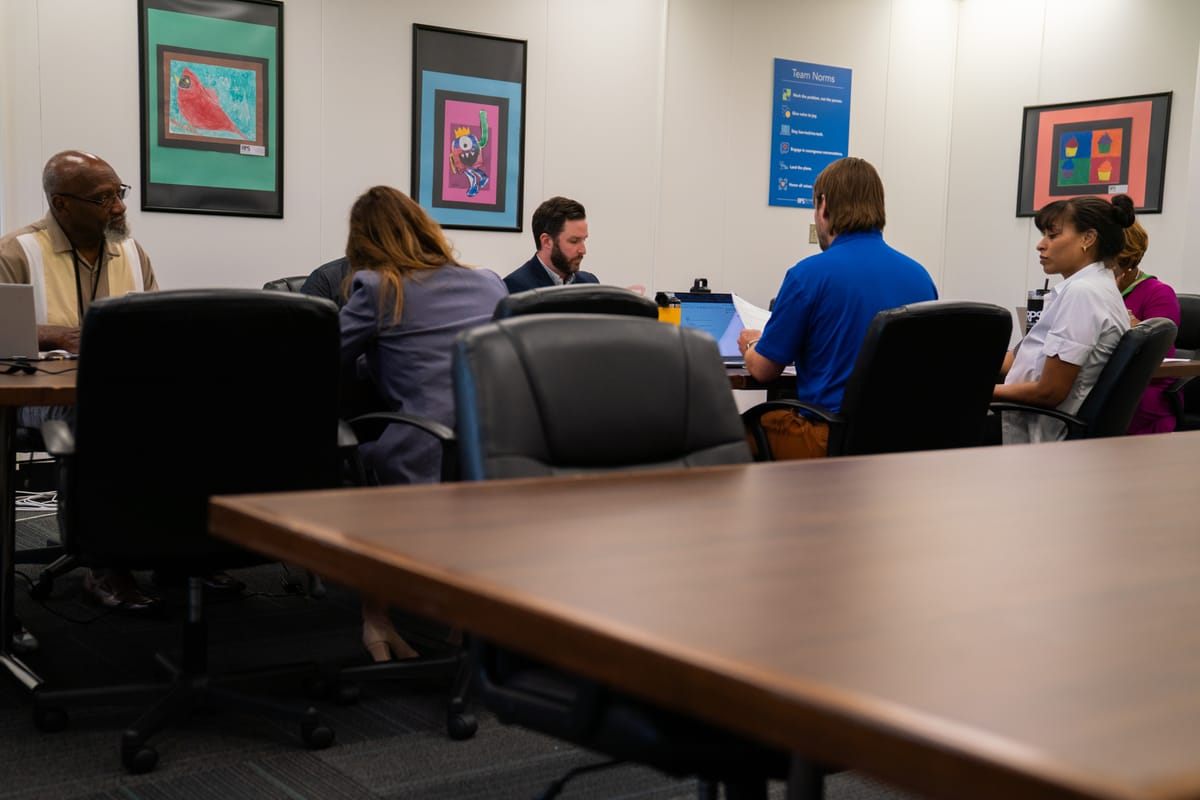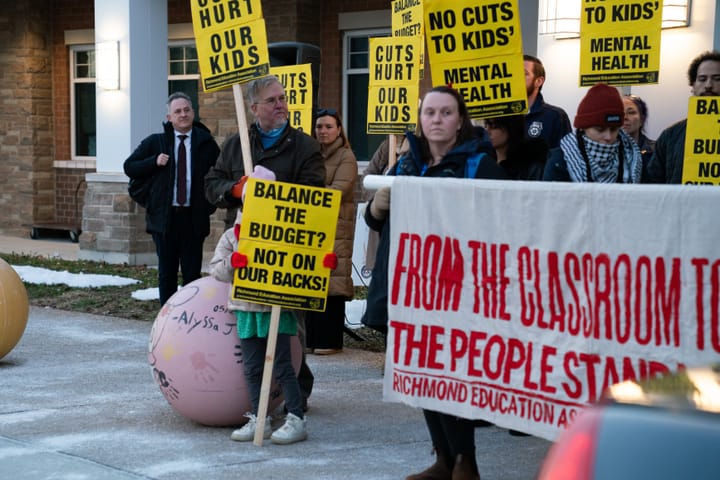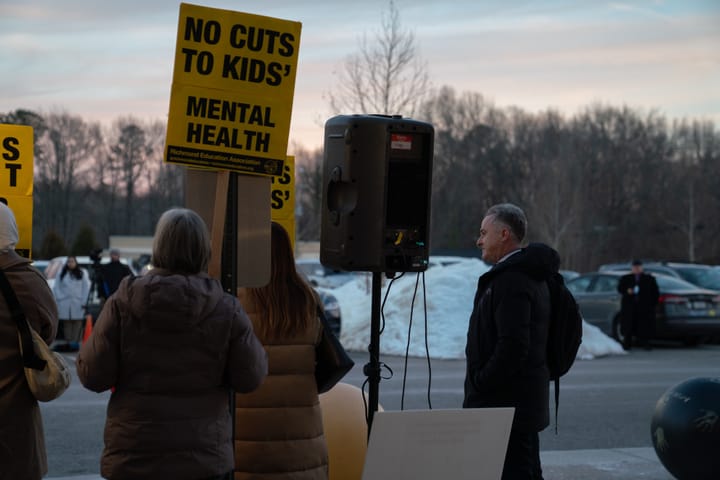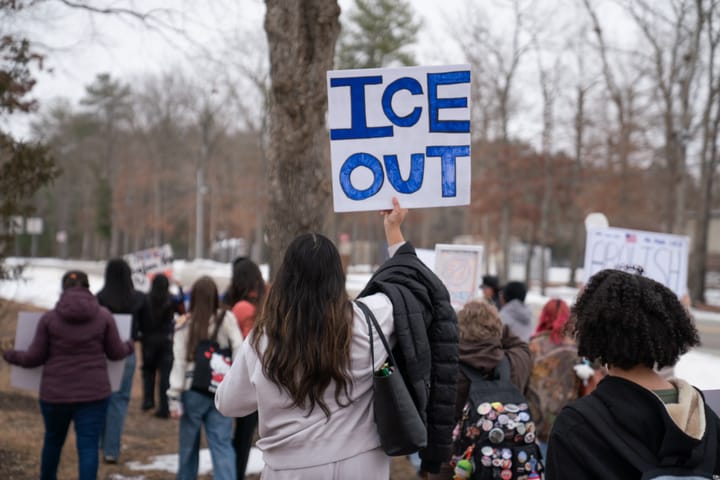School board reviews public comment policy, holds off on suggesting changes for now

There could be changes coming to how public comment operates at Richmond School Board meetings.
Board members on the Policy Committee worked through ideas they could add to its rules surrounding public comment last Monday night. The entire board agreed earlier this month to have the Policy Committee meet to review its public comment rules and consider potential changes.
“I believe in the policy as it is currently written,” said Committee Chair Shonda Harris-Muhammed (6th District). “I want us to do what was asked of us – review it, discuss it and see if we have anything different to add.”
Members of the policy committee agreed to not change the 30-minute allotted time for public comment. They also agreed to keep the three minutes given to individuals and five minutes given to organizations to speak. But the members discussed additions to the policy, including a “cadence” or limitation on how often certain pre-registered public members speak at meetings.
Ali Faruk (3rd District) proposed that if a pre-registered speaker – excluding organizational representatives – spoke at one school board meeting, that speaker would speak again at the meeting after the next.
“Just to make sure that diverse people have the opportunity to be heard and we don't have people just taking up spots every time,” he said.
The cadence mirrors City Council’s public comment policy, board members said. City Council’s public comment policy currently states that an individual can appear before Council for no more than four times a year and no more than once within a three-month period. It’s unclear if the Council has actually enforced this rule.
Questions were raised around whether such speakers can speak on different topics rather than what they previously talked about and if the board could create specific public comment sessions for specific agenda items.
“I can see that extending our meeting because we're stopping, then we're going to restart,” Harris-Muhammed responded. “Then it's a never-ending cycle because what if I'm that person that everything on your agenda today is a hot topic for my household?”
Megan Rhyne, director of the Virginia Coalition for Open Government, said while she understands the need for efficient meetings, policies like the potential cadence “does a big disservice to citizens,” as it further stifles people being able to speak up about what’s important to them.
“You have to pick and choose and prioritize without knowing what’s going to come up in the future,” she said. “I think that’s unfair to citizens.”
School board members also considered allowing public comment at committee meetings, which Harris-Muhammed said would increase participation in the work for the committee. Jafari asked if committee meetings are different from the general school board meetings and if there are any restrictions around that idea. Harris-Muhammed said it might be necessary to have a school attorney present if that idea is explored.
If school board members decide to do this, Rhyne said that members would need to make an effort to notify people of the session at committee meetings. But this can pose its own problems, she said, as it takes more commitment by the public to follow those committees and know which ones it cares about.
“They already have jobs and lives and you want them to come to multiple committee meetings, that’s a pretty tough burden,” she said.
The board also discussed adding a rule that allows a majority vote from the board to the public comment period to an additional 15 minutes. Wesley Hedgepeth (4th District) noted that the policy language already allows for a majority vote expansion rule, and advised against being “too prescriptive” with the policy. Rhyne echoed this, saying that getting too detailed in the policy “makes adaptability difficult.”
The Richmonder is powered by your donations. For just $9.99 a month, you can join the 1,000+ donors who are keeping quality local journalism alive in Richmond.
The last few school board meetings have been overwhelmed with citizens approaching the school board to express their concerns on “hot topics,” like the budget, collective bargaining and reinstating the five bus drivers the division previously fired.
At a May school board meeting, members spent some time deliberating how much time to give to the 20 pre-registered speakers who signed up that night for public comment. Board members were torn between providing a specific additional amount of time for all pre-registered speakers or letting speakers express their concerns for an unlimited amount of time.
“After the comment section is over, we still have board business to attend to, and sometimes that draws out to 12, 1 o’ clock in the morning,” said Board Chair Shavonda Fernandez (9th District). “So if we are to be consistent in our approach, I think we have to be able to draw the line at some point.”
The board agreed temporarily at the time to reduce the time pre-registered speakers spoke from three to two minutes for individuals and five to three minutes for individuals representing organizations, as suggested by Cheryl Burke (7th District). Board members were met with outbursts of frustration from attendees.
Harris-Muhammed also mentioned during Monday’s meeting that the board previously had a vague public comment policy, and public comment previously went on for two hours during meetings in 2021, emphasizing the need for a strong policy.
“The public looks for something to be set and they don't want it fluctuating as they prepare to come and speak,” Emmett Jafari (8th District) said during the policy meeting.
Hedgepeth said that the current policy in place is predictable, and there are ultimately many ways for constituents to communicate their thoughts to board members outside of public comment.
The policy will be reviewed at the next committee meeting in August. Harris-Muhammed told all board members at the early July meeting that the committee might have a sample updated policy in September.
Contact Reporter Victoria A. Ifatusin at vifatusin@richmonder.org






